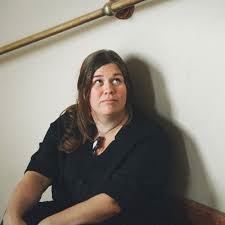A posting from the blog of Hanna Akerfelt
ICWP member in Finland
For the first time in my life I’m in the incredible position of being able to write full time for the coming year and a bit. It’s thanks to both a commission and a grant from Svenska Kulturfonden. I’ve dreamed about this, to write full time, for almost fifteen years. It’s a privilege, no question. So, like a cold on the first day of the summer holiday I’m struck by doubt and questions and hopelessness. How am I ever going to do this? How am I going to get those ideas out of my head and onto paper in a form that anyone else understands? And why do I think that the stories that fascinate me are going to interest anyone else in the slightest? And it’s just Monday.
When I’m struck by these moods, because this isn’t the first time it’s happened it’s just worse this time, one of the things I do is look to other playwrights and writers. It feels comforting to read what they’ve said about their work, their processes, and their ups and downs. There’s a special section of my bookshelf dedicated to books with texts by and interviews with playwrights about writing. I listen to as well, among others to The Royal Court Playwrights Podcast as well, where Simon Stephens interviews playwrights. That’s where I turned this time, listening to interviews with a range of female playwrights. One of the questions he asks in at least a couple of the interviews was “Who do you write for?”.
I’ve never consciously formulated an answer to the question of who I write for, but right now it’s a great question to sink my teeth into. Because it’s not about me, the question is about something outside myself, and I really want to get out of my head. The interviewed playwrights give their different answers, which can lead to different discussions about how you think about writing, about theatre, about your audience. I start thinking about the last play I’ve written, a passion project I’ve worked on for over five years, in between jobs and projects. It’s a play that’s not going to be produced, not necessarily because it’s bad or irrelevant, it just doesn’t fit an easy model. Too small in its scope to be suitable for a big stage, but it needs too many actors to be done on a small stage.
So who is it I’m writing, and continue to write, this doomed play for? I do if for my own enjoyment, I can’t deny that. If I didn’t want to do it there would be absolutely no reason for me to do it. But. On another level I keep writing the play for the people in the story, so that they won’t be trapped inside my head, so that they can come out and exist in a world outside of me, even if that world is just the drawer of my desk. For my sins I have to tell their story, because nobody else knows them. If I don’t do it nobody else will. And I can’t have that.
As I continue listening to playwrights talking about why they write, how they got started and share their experiences of directors, rehearsals and life, the storm inside me starts to subside. Because I’m not alone with any of the things I’m struggling with. Everything you do or write isn’t great, not even after you’ve done fifteen drafts, not everything succeeds, not everything has to succeed, you can still learn from the work and the process. That thought feels good. It feels good to give yourself permission to fail, both as a writer and as a human being. So I’ll just keep writing. It’s the only thing I can do, the only thing that helps when it comes to doubts.
Take a deep breath and write.

Hanna's blog can be accessed at: http://hannaheartfelt.blogspot.com
![]() at the top of the post
at the top of the post![]() at the top of the post
at the top of the post